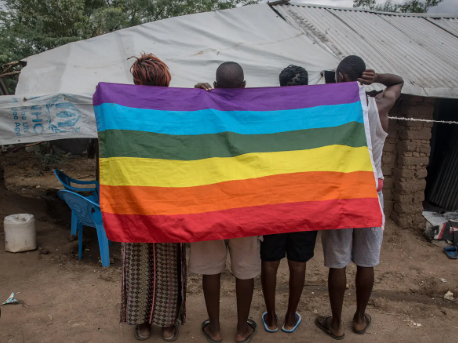Human Rights
Uganda : Understanding the Implications of the Anti-Homosexuality Bill

The Anti-homosexuality Bill passed by Uganda’s parliament on May 2 has drawn criticism from the Joint United Nations Programme on HIV/AIDS (UNAIDS), warning of its detrimental impact on Uganda’s efforts to combat HIV/AIDS by 2030 if it becomes law.
Anne Githuku-Shongwe, the Director of UNAIDS for East and Southern Africa, expressed concern that the bill would hamper Uganda’s progress in addressing the AIDS pandemic. She emphasized that it would deter communities from accessing essential services and impede health workers and civil society groups from providing vital HIV prevention, testing, and treatment. Additionally, Githuku-Shongwe highlighted the bill’s violation of fundamental human rights, including the right to health and the right to life.
Uganda already has stringent anti-homosexuality laws in place, but the proposed amendments seek to impose even harsher penalties, including life imprisonment and death for certain homosexual acts. UNAIDS has urged the Ugandan government to reconsider the bill and prioritize promoting human rights, ending discrimination and stigma, and ensuring access to essential health services for all citizens, including marginalized communities like the LGBTQ+ community.
Githuku-Shongwe noted that the bill contradicts the positive trend of decriminalization occurring in Africa and globally, and emphasized the importance of rejecting legislation that undermines public health efforts. She stressed that criminalizing homosexuality would exacerbate existing stigma and discrimination, making it more challenging for healthcare workers to provide necessary services and increasing the risk of HIV/AIDS transmission.
Currently, 1.4 million Ugandans are living with HIV, with millions more at risk of infection, including members of criminalized populations such as sex workers, men who have sex with men, people who inject drugs, and individuals in prisons. These populations face significant barriers to accessing HIV testing, treatment, prevention, and care services due to stigma and discrimination.
The passage of the bill has also drawn concern from the United States, with National Security Council spokesperson John Kirby warning of potential economic repercussions for Uganda. Dr. John Nkengasong, head of The U.S. President’s Emergency Plan for AIDS Relief (PEPFAR), emphasized the importance of U.S. health assistance in supporting Uganda’s HIV response and expressed concern that the bill could jeopardize efforts to end HIV/AIDS and threaten the lives of LGBTQ+ individuals and other key populations.
In response to criticism, state minister for Sports, Peter Ogwang, urged MPs not to be swayed by Western pressure, suggesting that foreign aid may be withdrawn under the guise of promoting homosexuality in Uganda. He argued against the aid withdrawal, citing studies that allegedly link homosexuality to the spread of AIDS and emphasized the importance of remaining steadfast in Ugandan identity and values.
